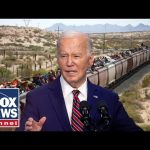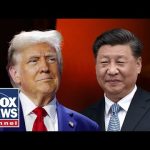In a bold move to reshape the federal budget and refocus government priorities, the Trump administration has announced a sweeping proposal to cut $9.3 billion in federal spending, targeting long-standing funding for NPR, PBS, and the State Department. This initiative aims to rein in what many see as bloated, inefficient government programs that have become vehicles for left-leaning narratives and globalist agendas, often at the expense of American taxpayers. For years, conservatives have argued that federal funding for public broadcasting disproportionately supports progressive viewpoints, and this proposal finally takes a stand to end that imbalance.
The administration’s plan to eliminate nearly all federal support for NPR and PBS has been met with predictable outrage from the left, but it’s a welcome development for those who believe in fiscal responsibility and viewpoint diversity. Public broadcasting has long positioned itself as neutral, but its programming and editorial decisions frequently reflect a progressive bias, marginalizing conservative voices and values. Redirecting taxpayer dollars away from these institutions is not just about saving money—it’s about ensuring that Americans aren’t forced to subsidize content that undermines their beliefs and way of life.
Alongside these budget cuts, the administration is taking decisive action on trade policy, implementing reciprocal tariffs to address persistent trade deficits and unfair practices by foreign competitors. These tariffs are designed to level the playing field for American manufacturers, who have suffered for decades under trade deals that favor foreign interests. By imposing tariffs on countries that refuse to offer fair access to their markets, the administration is sending a clear message: America will no longer tolerate one-sided trade relationships that hollow out our industrial base and threaten our national security.
The economic impact of these tariffs is already being felt, with customs revenue rising and the monthly budget deficit shrinking. While critics warn of potential trade wars, the reality is that strong action is necessary to protect American jobs and industries. The days of endless deficits and unchecked globalization are coming to an end, and the administration’s America First approach is restoring confidence in the nation’s economic future. The increased revenue from tariffs is a testament to the effectiveness of these policies, providing much-needed funds for critical domestic priorities while reducing reliance on foreign goods.
Amid these sweeping changes, small businesses remain a crucial focus. While the administration has faced criticism for favoring large corporations, there is a renewed commitment to ensuring that Main Street entrepreneurs are not left behind. By cutting unnecessary regulations and leveling the tax playing field, the government is working to create an environment where small businesses can thrive without being smothered by red tape or unfair competition. The road ahead may be challenging, but these reforms represent a significant step toward a stronger, more self-reliant America—one that puts its citizens, workers, and businesses first.




